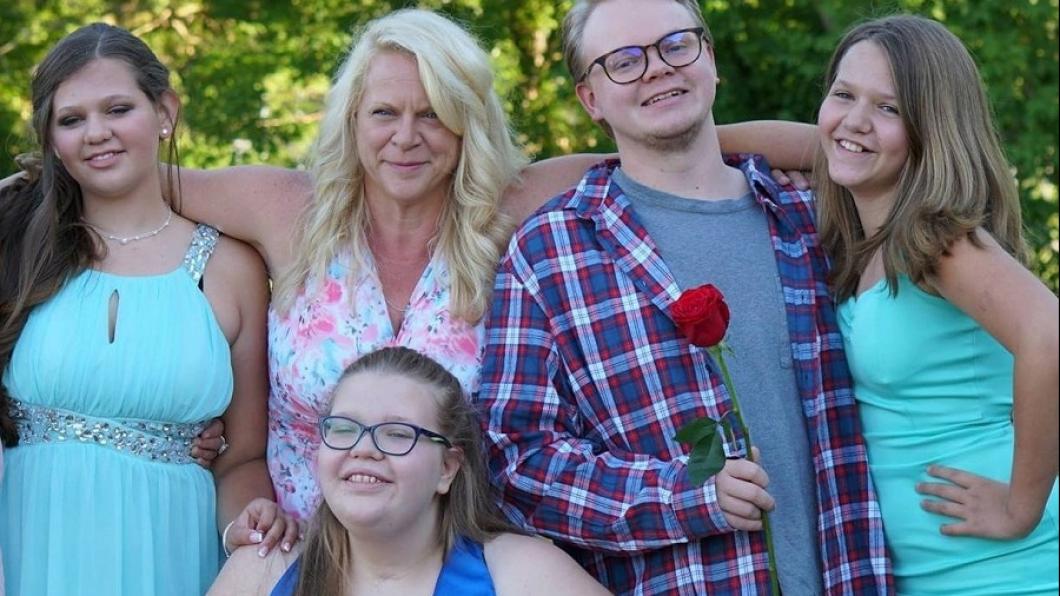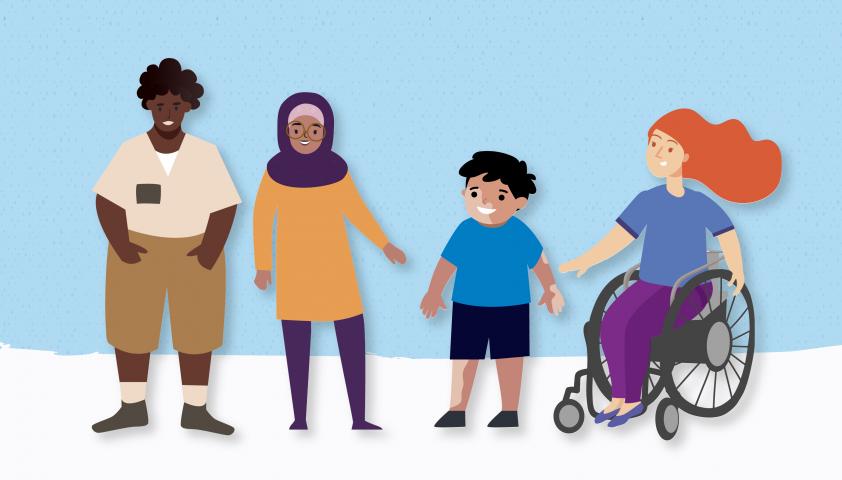
Researchers launch novel parent guide to give parents the tools to have confident conversations with their kids about weight as they head back to school
With the return to in-person learning this fall, students will have a great deal to look forward to. But for some kids who have turned to online learning, it may cause anxiety because they have become accustomed to not sharing their video during class in over a year.
“Kids will look different as they head back to school,” says Christine Hill. She’s a mother of four children, ages 14 to 24 years – all whom have inherited metabolic conditions that affect their muscles. “Many will be going through puberty, which can be an awkward phase. Other kids’ bodies may have changed so they may feel very self-conscious about their physical appearance when being seen by their peers for the first time in over a year. As parents, it is important that we give our kids space to talk about their feelings related to the size and shapes of their bodies.”
To address this need, researchers and knowledge translation experts at Holland Bloorview have developed a novel guide, Having Body-Positive Conversations With Children, for parents and caregivers. This new guide comes on the heels of a previous guide that was developed several years ago to help health-care providers navigate this sensitive topic with their young clients and their families.
“Our research found that many health-care professionals didn’t know how to have these important conversations with their clients so they would often avoid the topic. Parents were also saying the same because they assumed someone else would raise this topic,” says Dr. Amy McPherson, a senior scientist and director of the ProFILE Lab (Promoting a Future of Inclusive Healthy Lifestyles for Everyone) at the hospital’s Bloorview Research Institute.
After receiving this feedback from parents, she along with Christine Provvidenza, a knowledge translation lead in Holland Bloorview’s specialty Evidence to Care unit, developed this guide in close collaboration with Hill, who is also a parent volunteer, along with two other family leaders at the hospital. The family advisors were engaged throughout the entire process in the guide’s development, including its intended goals, accessible content and child-friendly design.
The researchers also completed an extensive review of published studies and literature to gather the best practices and credible resources to determine the criteria for information to include in the guide.
After a year and a half of research, the result: the first fully accessible, evidence-informed guide of its kind for parents and caregivers on how to have body-positive conversations with youth living with different abilities.

“Parents, in general, may be quite wary about talking about their child’s weight and not know how to approach this topic. This guide provides practical suggestions for caregivers that can be tailored to their child’s unique abilities in their own environment,” says Provvidenza. “We also wanted to make sure that tips for both children and youth with and without disabilities are embedded throughout, so that it’s really a guide for everyone.”
The online guide is interactive so parents can browse through topics ranging from ‘what they should say’ to ‘open conversations’ to ‘how to respond if a child is being teased for their weight’. There are also activities they can complete with their child as well as tips on how to talk about body diversity, which means bodies can be different shapes, sizes and abilities.
In addition to its accessibility features, the guide has been reviewed by 15 leading authorities on childhood body image, weight and communication in Canada, the U.S and U.K.
Dr. Rebecca Puhl, one of the reviewers and a leading expert on weight-based bullying says she has not seen any other resource like this guide despite the high demand for it.
“When it comes to body weight, this is a very emotionally charged topic, especially for youth and adolescents,” says Puhl, who is a professor from the University of Connecticut. “Even the most well-intentioned parent can sometimes make comments that can be very harmful to their child’s self-esteem. We really need to give parents and caregivers the tools and knowledge to communicate in ways that are supportive when it comes to weight.”
For Hill, who is a manager of stakeholder relations at the hospital’s foundation, she is passionate about educating others to celebrate everyone’s unique differences.
“When someone’s living in a larger body, it rarely means they eat too much. It can mean there are other things going on physiologically,” says Hill, who herself has the same inherited condition as her children. “I love who I am right now. I think arming more parents with information can help their kids with different bodies feel better about themselves and keep their self-esteem intact. We all want our kids to grow up with healthy, active habits that they can maintain throughout their lives.”